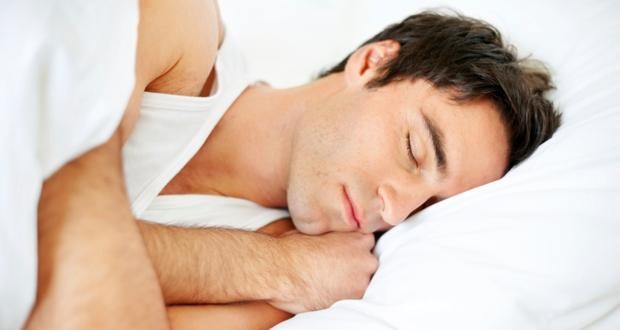
Most of the time you will hear and read about the dangers associated with lack of sleep, but there are also risks of sleeping too much. When you sleep, you allow your body time to repair itself and recover, but if you don’t get the required time to rest it can affect your health. Most people know that getting just a few hours of sleep is bad for you and is associated with several chronic diseases which also leave you sluggish and irritable the whole day. Oversleeping is linked to headaches, heart disease, depression, type 2 diabetes, obesity, and high chances of dying from a medical condition. However, oversleeping doesn’t necessarily, make you sick, but it could be a sign of an underlying condition.

When does sleep become too much?
According to sleep experts, you shouldn’t sleep for more than 8 hours per night. For most adults, it’s is normal and healthy to sleep for 8-9 hours. Other believe that 7 hours of sleep is associated with better brain health and longevity.
The amount of time you need to sleep varies from one individual to the next. While some are well rested after 7 hours, you might need 8 hours. If you’re a very active person during the day, you will require more sleep at night. Sleep provides energy to your mind and body which helps in repair and recovery. When you’re having health issues, you tend to sleep more, whether it’s a cold or cancer. The circumstances you might be going through in your life can temporarily increase your need for sleep. It’s not only the negatives like stress that can increase your need for sleep, but also the positives. Your age will also determine the amount of time you sleep, if you’re in your 20s you can sleep for 7 hours, but in your 50s or 60s, you need at least 6-8 hours of rest.
However, if you sleep for more than 9 hours, this is considered excessive. Sleeping in for a little longer during the weekend isn’t a big deal, but if you regularly oversleep for more than 9 hours and you still don’t feel well-rested, then something might be wrong. You can relate oversleeping with the phrase, ‘too much of something is poisonous’, which means you may be doing yourself more harm than good.
Physical side effects of oversleeping
Headaches
If you suffer from headaches, sleeping for too long over the weekends can cause head pains. If you wake up with a headache or brain fog after 12 hours, it could be because of caffeine withdrawal if you’re used to taking your coffee early in the morning. It could also be because you’re dehydrated as your body is lacking liquid. Sleeping too much during the day could affect your nighttime sleep which can also cause headaches in the morning.
Inflammation
Many ailments in your body are caused by inflammation. You can get inflammation in your body because of various reasons including chronic infections, obesity, and even too much or too little sleep. This causes the cytokine levels in your body to increase which compromises your immune system. Cytokines are small proteins released by your cells that are responsible for regulating inflammation.
Increased pain
If you suffer from pain and especially back pain, sleeping for too long can make the pain worse. When you lie down or sit in one position for too long, then you suddenly stand up or move you might experience stiffness and body aches. When you sleep too much your body isn’t moving and for your body to heal there needs to be movement and circulation. Another reason your body could be sore is sleeping on the wrong mattress.
Type 2 diabetes
Sleeping for too long or not getting enough sleep increases your risk of developing diabetes. When you don’t balance your sleep cycle, your body isn’t able to process glucose properly which can lead to type 2 diabetes or impaired glucose tolerance.
Impaired fertility
Too much or too little sleep affects your hormone levels which in turn impacts on your pregnancy outcome. So the amount of sleep you get every night affects your fertility levels. According to a study, women who slept moderately for 7-8 hours had higher chances of getting pregnant with IVF than the women who slept for more than 9 hours.
Tips to help you stop oversleeping
Eat healthily
If you’re always tired or exhausted even after getting proper rest, you might not be eating a diet with the right nutrients that your body needs. Also drinking a lot of water to keep yourself hydrated to help reduce fatigue.
Regular exercising
Regular exercising and movement increase your energy levels. The best time to work out is early in the morning and afternoon, but avoid intense workout 3-4 hours before your bedtime. This will rejuvenate your body and increase endorphins levels.
Set the right bedroom environment
Don’t use your electronic devices in your bedroom they interfere with your sleep. Also, replace any unsupportive and worn-out mattresses that make it hard for you to sleep. Get a comfortable and supportive mattress like the Casper mattresses for example, that provide support and cushioning for your pressure points. Drown out any noise from the outside using earplugs or white noise machine. And try lowering the temperature in your bedroom to about 60-68 degrees.
Get enough sunlight daily
Get some sunlight during the day because exposing your body to natural light helps to maintain its circadian rhythm. Light and darkness tell your body when it needs to be active and when it needs to rest. To maximize the benefits of the morning rays, you can take your morning tea or coffee on your patio or outside your front door or take a walk around the block.
Use an alarm clock
If you oversleep, you can place your alarm clock a bit far from your bed so that you have wake up to go turn it off. If you have a partner, they can help you in sticking to your waking up regime.
Final thoughts
Oversleeping has many adverse effects not only on your physical health but also on your mental health. It can also affect your family, career, and relationships. If you’re having trouble getting up in the morning, it could cause you to miss out on family time and social events, or get late for work. It is a good idea to talk to a medical professional to ensure that your body gets the right amount of rest.















